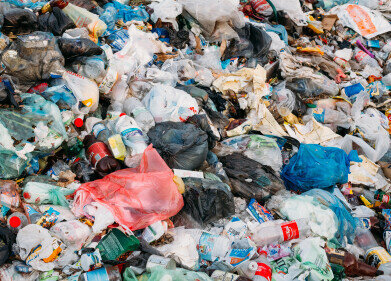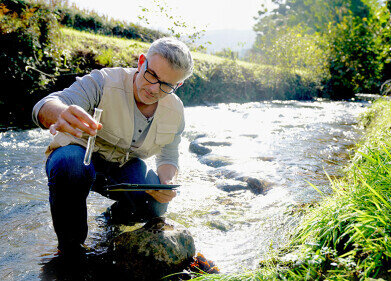Environmental Laboratory
How Do Lithium Batteries Affect the Environment?
Sep 01 2018
Over the past decade or so, the global infatuation with smartphones and all kinds of other technological gadgetry has resulted in a spike in demand for lithium-ion batteries. With increasing emphasis placed on transitioning to renewable sources of energy – which themselves require sizable batteries to make the technology feasible as a replacement for fossil fuels – that demand is only expected to increase.
This means that the lithium mining industry is undergoing a major boom right now. Large deposits in China and South America are being heavily exploited to try and extract the maximum amount of lithium from the Earth possible – but this is having major repercussions on the environment. Energy-intensive extraction techniques and unwanted contamination side-effects highlight why monitoring the mining industry is so crucial in today’s increasingly eco-conscious world.
Exhausting our natural resources
One of the largest deposits of lithium is believed to be stored under the Salar de Uyuni in northern Chile and southern Bolivia. Indeed, the Bolivian Andes mountain range has been estimated to contain over two-thirds of the world’s total lithium supplies, according to some experts. Accordingly, the area has been subject to intense drilling operations over the last few years.
The spike in demand can be attributed to an announcement made by the Chinese government in 2015, when it prioritised electric vehicles (EVs) as part of its 13th Five-Year Plan. Over the period from 2016-2018, the price of lithium has more than doubled and is expected to keep on rising as global demand continues to increase. As such, Bolivia is hoping to leverage this natural resource to shake off its current impoverished status.
The problem is that extraction of lithium impacts negatively on other facets of the environment. In a climate so dry and arid as the Atacama Desert and the Salar de Uyuni, 500,000 gallons of water are needed to produce just a single tonne of lithium. This takes away this most precious of resources from neighbouring farmers, who need it to cultivate their crops and livestock.
A polluting after-effect
What’s more, the toxic cocktail of chemical used to extract the lithium from the ground is also capable of infiltrating nearby rivers, streams and water supplies. Exactly this catastrophe occurred in the Liqi River in Tibet in 2016, where mining operations contaminated the water and resulted in thousands of dead fish and many poisoned cattle and yak. It’s the third time that it has happened in seven years.
Of course, robust river monitoring solutions can help to minimise the risk of such outcomes occurring, but they can’t eliminate them completely. Even in areas where lithium is mined from rock rather than under the ground, chemicals are still a key part of the process. A recent report into the effects of a lithium mine in Nevada found fish had been affected by the operation up to 150 miles away.
With that in mind, environmentalists are calling for researchers to discover new and less invasive ways of powering the batteries necessary to sustain a renewable revolution. However, this avenue also holds its own pitfalls; there’s no guarantee that a substitute source – even if it produces less emissions or is more environmentally-friendly on the surface of things – might not adversely affect the atmosphere through other means, such as labour intensity or transport. As such, the quest for a durable battery continues to be a one in which we must tread lightly.
Digital Edition
IET 34.2 March 2024
April 2024
Gas Detection - Biogas batch fermentation system for laboratory use with automatic gas analysis in real time Water/Wastewater - Upcycling sensors for sustainable nature management - Prist...
View all digital editions
Events
Apr 30 2024 Melbourne, Australia
Apr 30 2024 Birmingham, UK
May 03 2024 Seoul, South Korea
May 05 2024 Seville, Spain
May 06 2024 Minneapolis, MN, USA


















